MOTÖRHEAD: ANOTHER PERFECT DAY
ALBUM REVIEW: Motörhead's first LP sans Eddie, and their last for Bronze, was ignored on release but has become a classic. It was the record that began my lifelong adoration. Another Perfect Day.
MOTÖRHEAD: ANOTHER PERFECT DAY
BRONZE RECORDS/BMG/MURDER ONE RECORDS
1983
I can recall the specific moment I “got” Motörhead.
It was 1986. School summer holidays. I had just turned 16 and was learning, with great rapidity, that I was neither naturally gifted, nor remotely interested in mechanical problems.
My 16-year-old self had purchased my first motorbike. An old Suzuki TS50ER. I had it re-bored so it went quicker than it was supposed to, and at this moment, I had it in pieces on the garage floor. The carburetor needed cleaning.
It always seemed to need cleaning.
I had resigned myself to being engineeringly inept and had called a more mechanically minded friend to “help” reassemble it.
I contented myself with the more comfortable arts-and-craft task of spraying the tank instead.
For entertainment in Dad’s garage, I only had my mono cassette player. I had detached it from my ZX Spectrum and was using it to play tapes.
One of them was Another Perfect Day.
Of course I was aware of Motörhead. I’d had No Sleep ‘til Hammersmith in my record collection for a year or two, everyone knew Ace of Spades and I had Iron Fist on a compilation LP, but I’d never really gelled with the band.
We all knew who Lemmy, Fast Eddie and Philthy Phil were but they weren’t yet mine. They would become so, soon enough; over the years, numerous pets - from rabbits to gerbils to goldfish - have been named after those patron saints of Rock and Roll.
I interviewed Lemmy twice in the 1990s. He was bloody lovely.
Back in the garage, I had just returned from Donington Monsters of Rock, where Motörhead had been placed mid-way up the bill and were playing an Orgasmatron set. They were great.
Far better than Scorpions and Def f**king Leppard, who were higher up than they were.
It’s probably why I had taken the tape out to listen to.
Up until that point, they were just too noisy and I couldn’t discern enough tunes to really be that bothered by them.
I confess, I was a weak-minded fool.
Then, that fateful day, surrounded by so many nuts, bolts, oily gaskets and indiscernible brass bits that I wanted to either cry or puke, Motörhead clicked.
It was Back At The Funny Farm. I laughed at the lyrics. I rewound the tape and played it again.
And again.
Then it was Dancing On You Grave. The sheer musicality of its central riff still sends shivers down my spine.
From that moment on, I was in. Motörhead became a bedrock upon which all other music was judged. As fundamental to my belief system as understanding that I should (and would) never touch an engine again. Ever.
Motörhead were absolutely for me.
Motors, on the other hand, were absolutely not.
Three years earlier, 1983, was rapidly becoming one of the shittiest years of Motörhead’s career.
Fast Eddie Clarke had left (or was “excluded” from the band, depending which account you read) and Lemmy and Phil had recruited Brian Robertson from Thin Lizzy in his place. The classic lineup that had been together since 1976 and released three flawless LPs (and one flawed one).
Eddie had expressed his disappointment with the Iron Fist album and even more with their cover of Stand By Your Man with Wendy O Williams and the Plasmatics.
His leave was taken.
Lemmy went on record in his biography, stating his grievances with Robbo - the time he took in the studio, his fashion sense, his blasé relationship with responsibility… the list goes on. The new lineup wasn’t working well, but they had to deliver their final LP for Bronze Records, so they got on with it.
And Robbo is a fucking brilliant guitar player.
Another Perfect Day was released to disappointment from some fans. Rage from others. The band had lost their soul. It wasn’t Motörhead. It was too musical. Too shiny. It was shit. Robbo was wearing weird clothes. Silk shorts.
Espadrilles.
I’m here to say they were talking bollocks.
About the songs.
Not Robbo’s fashion sense.
That really was awful.
Time has been kind to Another Perfect Day; it’s now held in high regard - perhaps not on the Overkill/Ace of Spades/Bomber pedestal, but it’s not far behind. I can only think that its sequel, Orgasmatron, and maybe 1916 are considered as good as it by most Motörfans.
That’s really saying something, considering that all 23 Motörhead studio LPs have something going for them, even if it’s just a few of the deep cuts. No Motörhead LP is complete rubbish.
The album kicks off in fine form - arguably, a run of three songs that represent the band’s finest form.
First up is Back At The Funny Farm. It opens after a mumbling Lemmy remarks “Top notch!” and breaks immediately into a classic Kilmister bass riff, with Robbo’s infectious guitar leads hurtling us into Lemmy’s frightening tale of mental incarceration:
“Can’t find no windows but I gotta get outside;
Can you help me stand? It feels like both my legs have died!
What was that injection? ‘Cos I think it’s going wrong!
I really like this jacket, but the sleeves are much too long…”
That was the line that made me piss. Lemmy is a lyric-writing master.
It’s an overlooked fact.
Then we have the ladder-climbing bass clang of Shine’s intro. The second single for the LP. It’s a corker, in which Lemmy is convincing a nubile filly of his sexual prowess, despite his appearance being a little rougher than she might be used to. The fact that it’s essentially all about Lemmy knowing he’s punching above his weight, and bossing it out anyway, is both endearing and amusing, even if the subject matter is a shade dubious in these more enlightened times.
Track three is the song of the LP as far as I am concerned, and what’s more, it’s the song that inspired Sepultura’s band moniker. Dancing On Your Grave has the most sensitive, addictive and sparkling guitar line in any Motörhead song, ever. It also has solos to kill for and a lyrical theme that is almost a continuation of Shine. Lemmy is still convinced that his nameless muse considers him to be “real rough trade”, but this time he’s saying she’s wrong - that he’s too good for her. She can’t buy him.
He’s dancing on her grave. It’s a take-that song to end all take-that songs.
Not that Take That, silly.
Then we’ve got Rock It - a rolling and roiling ode to Rock and Roll. It might not be Lemmy’s most articulate, engaging or surprising lyrical journey, but it’s another cracker, driven especially memorably by Robbo’s guitar work.
Side One slides to completion on the back of another favourite. It’s Motörhead going slow - and it’s anthemic. One Track Mind is powerful and confident, despite starting with an uncharacteristic, heavily chorused gently picked guitar line from Robbo.
The song swings really well. Phil’s drums are laid back for a change - following, rather than leading. The chorus is a fist pumper, with the guitars echoing Lemmy’s vocal melody. You can tell that Robbo introduces a level of consideration and musicality to the songwriting that wasn’t there on the full frontal assaults of the classic albums.
You can see why fans expecting more of those guitar blizzards might be disappointed with Another Perfect Day’s fluidity, especially when matched with Robbo’s deliberately non-conformist costumery. Thankfully though, the songs are so strong that they outlast any prejudice and end up on top, changing hearts and minds.
Side Two kicks off with the title track. After another brief over-chorused intro, we crash in. Another Perfect Day has an epic feel; it has a mid-paced swagger - again, a confidence that you wouldn’t normally associate with Motörhead in this way.
Their bravado normally takes the form of a fist in the face or a reptilian seduction of some kind. This is more of an arm round the waist, a side-step behind your back and a quick snap of your neck. There’s something very sinister about it.
Marching Off To War deals with the traditional Lemmy topic of soldiering and all its trials, tribulations and glories. Robbo’s guitar, key changes and pauses make the song more interesting than perhaps it is. Tales of Glory, which comes up after the next track is similarly familiar. If you heard either song out of the context of the album, they’d be strong, however, in this company they sound more like out-takes than classics.
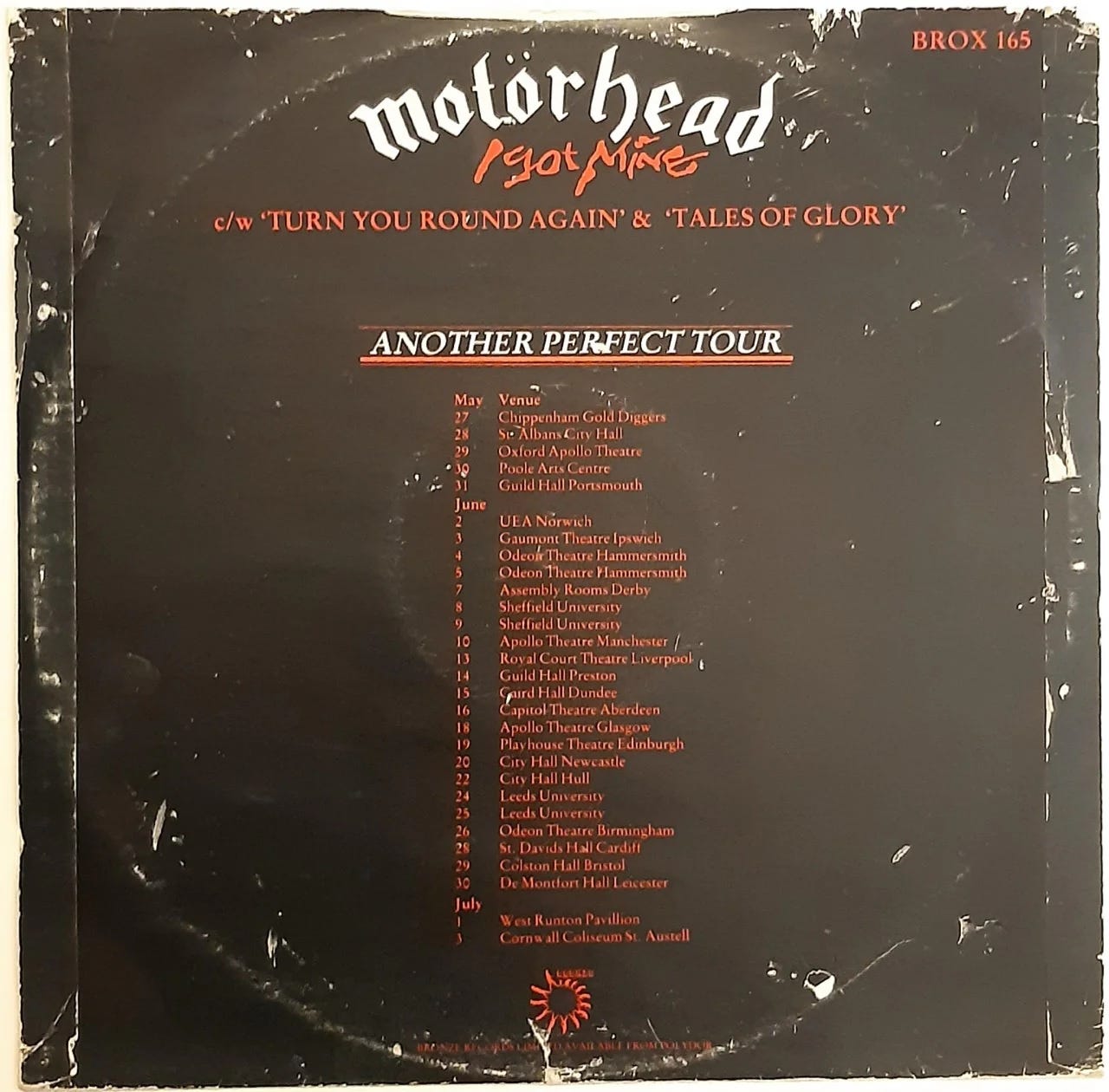
But in the meantime, I Got Mine. It was the first single from the LP. It might be Motörhead at their most commercial. It’s almost a pop song. Again, the chorused guitar is at the front of the mix. It’s weird how that works so well. I’m not convinced it should.
Eddie wouldn’t have been seen dead with a chorus pedal.
It might be one of the biggest changes to the sound and the one thing that makes Another Perfect Day sound so different to the previous albums. It cleans up all of the dirt that they grew out from like grubby little mushrooms. And, used with more varied compositional song structures, really does drag Lemmy and Philthy into the 1980s.
“Come on Baby, go back to start,
I got your picture on my heart,
It’s only me Babe, it’s only me,
Refuse disposal, refugee.”
Despite how referring to a woman as a “Babe” sounds dreadfully patronising these days, we know that that was the last thing that Lemmy was.
It’s interesting to me that song lyrics really show us how much culture and expectation around gender depiction, especially, has changed.
It even seems a bit weird - course, even - to hear so many songs about sex - the throbbing helm of Rock and Roll - not just from Motörhead, but generally - even from songs written just a few years ago - it’s sad in a way that we’ve evolved to see The Creep in everything, but if you look at sex songs through a contemporary lens, they can be a bit cringey.
The album closes in true whiplash fashion with Die You Bastard - and a Robbo solo that happily tears your speaker fabric and uses it to wipe its arse on before flinging it, with nary a concern for littering, into a hedge for a rambler to sniff.
It’s a strong one to end on and leaves you grinning, firmly believing that the last ten songs are the best ten songs you’ve ever heard.
My original record comes with the moderately amusing comic strip insert (above) which, in true self-deprecating fashion exposes the three personalities of the band at this transitional point in their career.
It definitely shows how “controversial” Robbo joining the band was, with comments on his musicality, jeers about his fashion-sense and notes about his drunken unreliability all being addressed in the few small panels.
I’ve also got the 40th anniversary remaster, on yellow and orange vinyl, which sounds great, but it’s the original one that I play. It just sounds right.
Something, incidentally, my CD copy never did. It always sounded quiet, tinny and weak. I hope later pressings addressed that.
It just struck me that I’ve owned Another Perfect Day on every format; digitally, on CD, twice on vinyl and that momentous cassette.
I wonder how many other albums I have deemed worthy enough for that?
Not many.
To me it’s the best Motörhead album for all the reasons mentioned here. It’s a different beast to any of the others albums.
And it’s got the best cover of all Motörhead records. Snaggletooth has never been depicted in such turmoil - a purposeful approach to reflect the band’s turbulent year by artist Joe Petagno.
Of course, there are times when only Bomber will do. There are times when Inferno or Bad Magic or Bastards or On Parole are the only albums that can flick that switch, in that moment.
But regardless of my mood, Another Perfect Day always hits home. It’s comforting, nostalgic, rocking and relevant - and that line from Funny Farm always lifts my spirits.
It is, as Lemmy would say - Rock and Roll.
And Motörhead were there to play it.



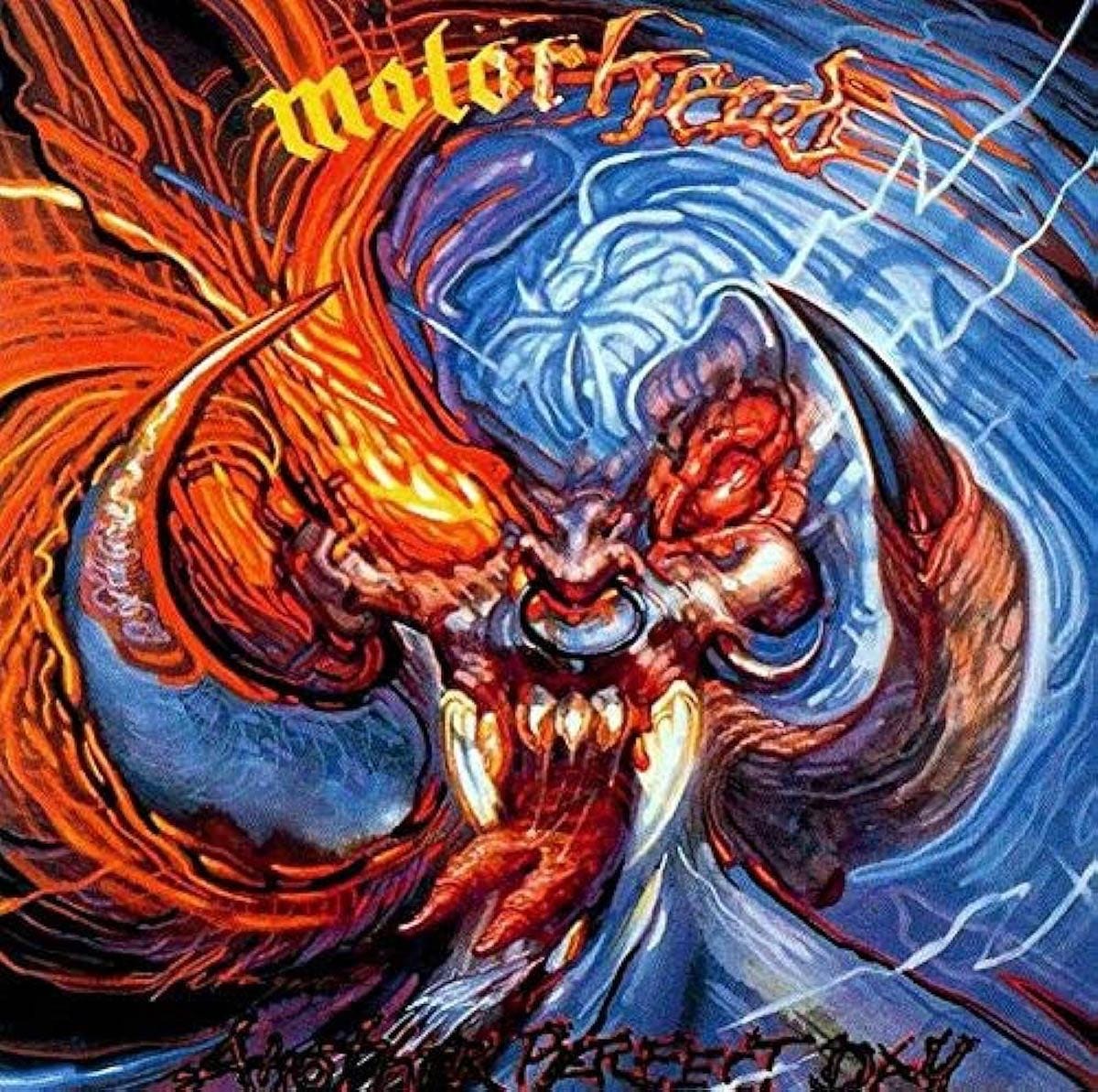

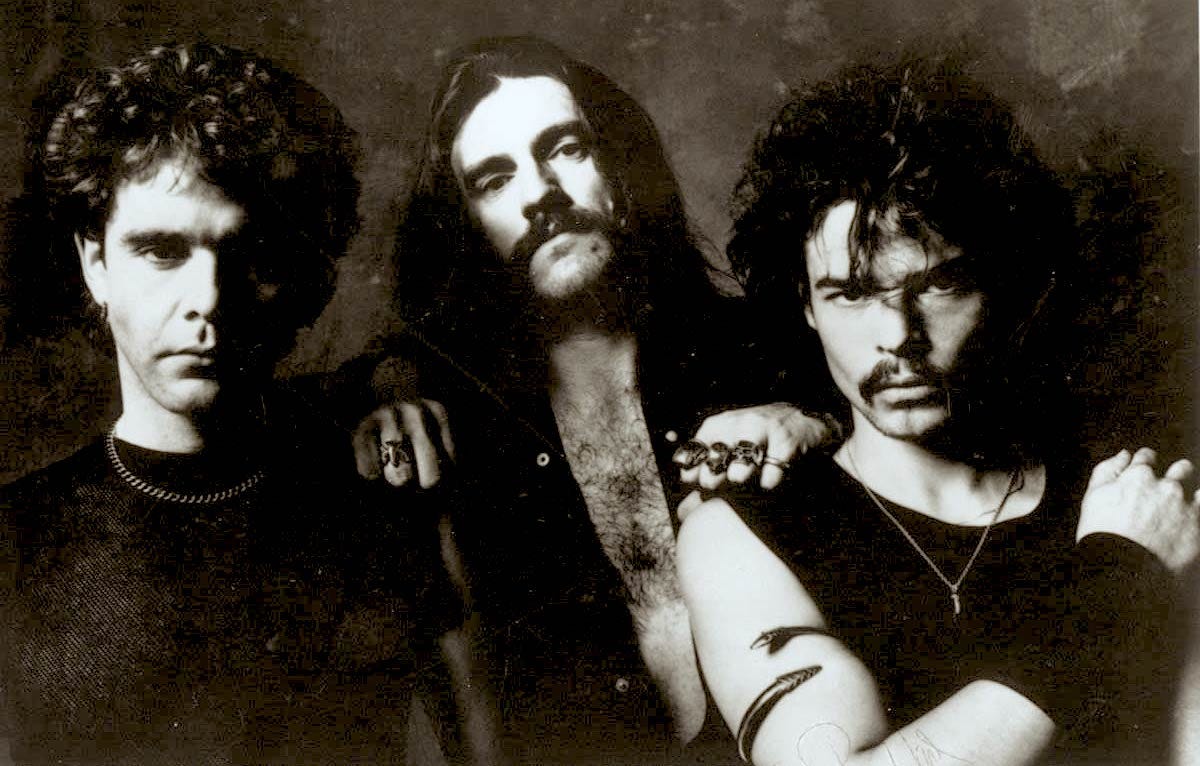
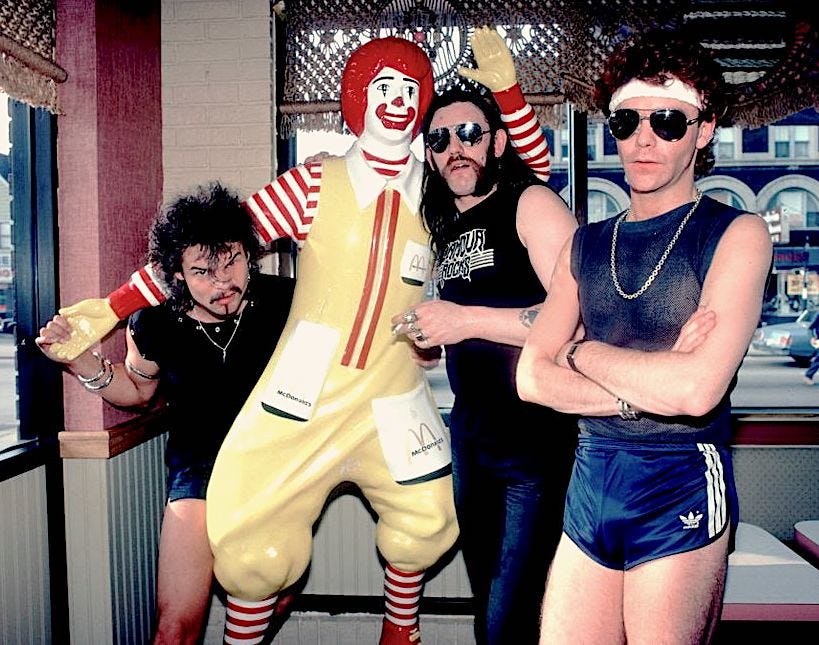
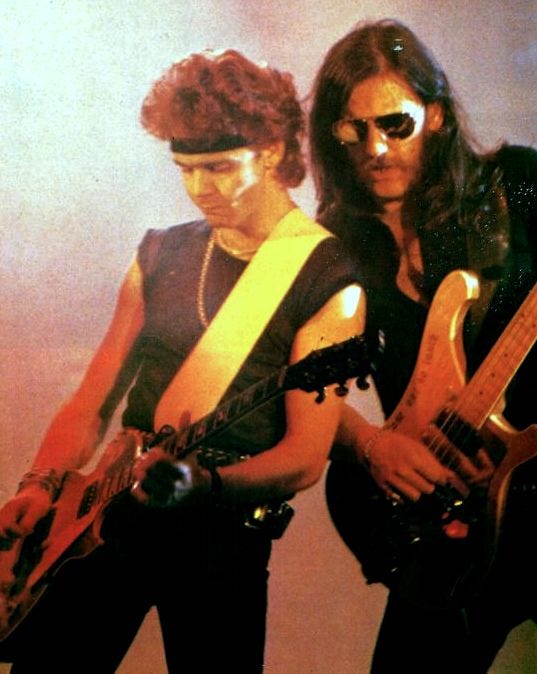
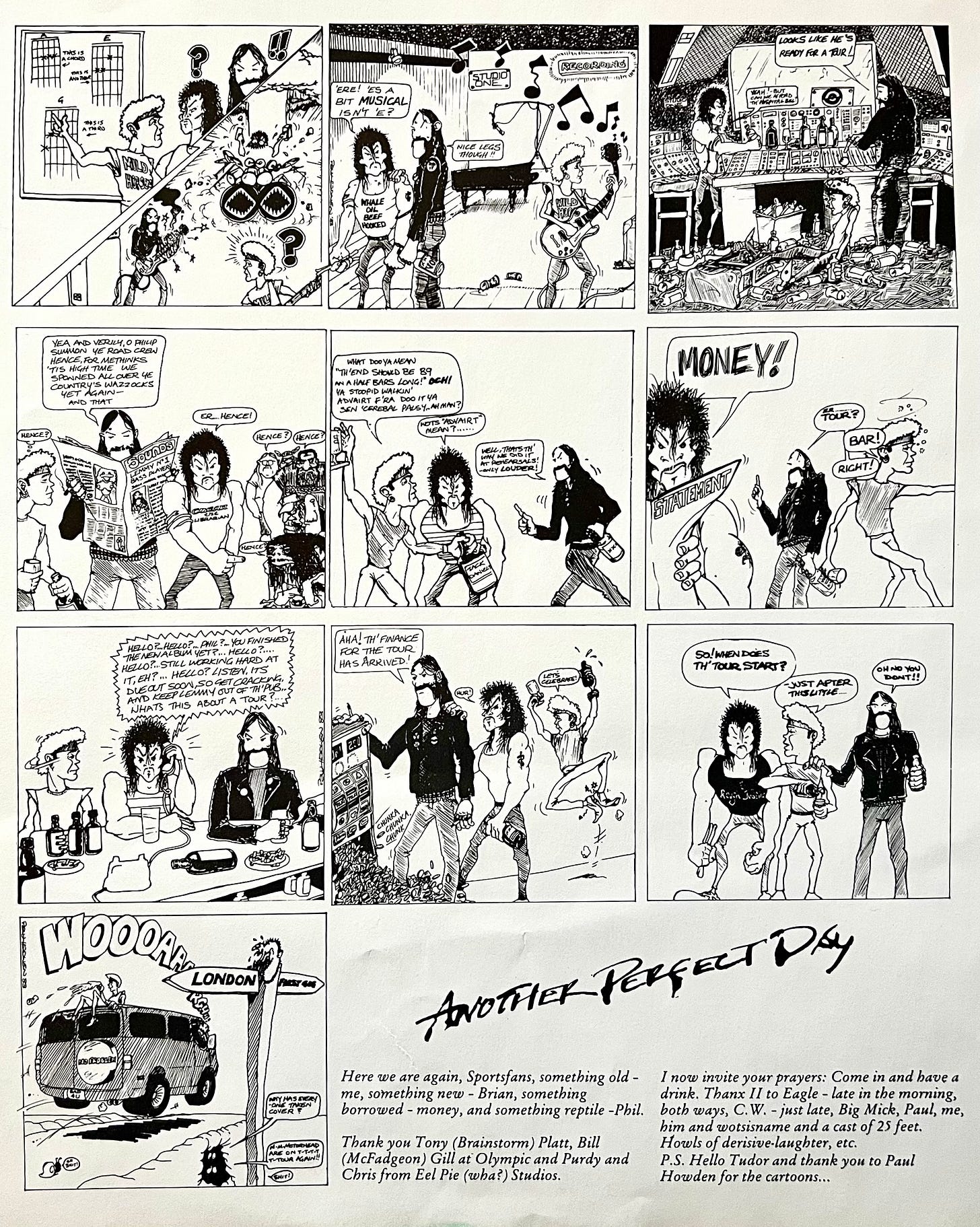
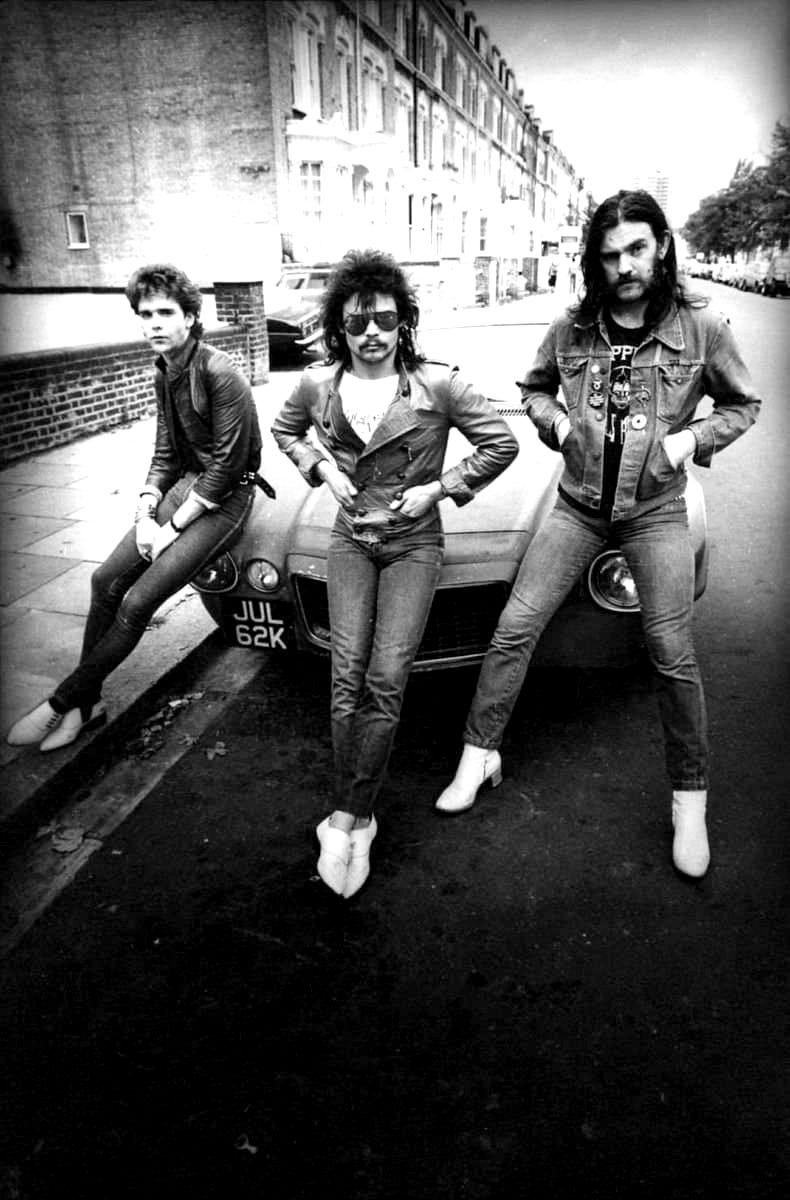
Always been one of my favourite Motorhead records, and for years I had to defend that to people, which made zero sense to me. And "I Got Mine", is really a stellar moment—it's warm but still has ice cold steel edge.
I got heavy into Motorhead with Orgasmatron, so, same era. Like you, I'd been aware of them for years, but that's the one that hooked me. Great piece!